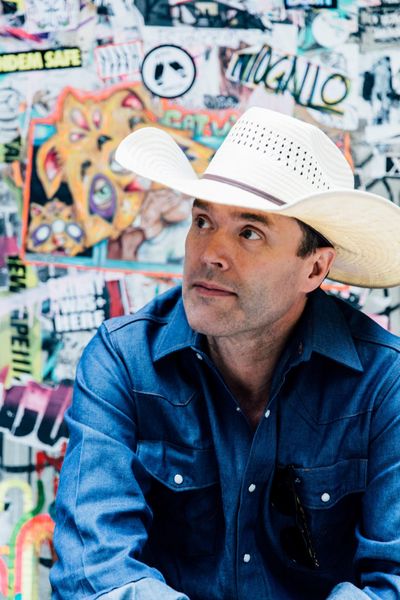Canadian country singer Corb Lund feels at home in western U.S.

Canadian country singer Corb Lund has a great elevator pitch.
“If anyone doesn’t know our music and they’re curious, our natural habitat is a saloon or a honky tonk,” he said, talking about himself and his band the Hurtin’ Albertans. “It’s good beer-drinking music if you’ve never heard us before. It’s a good time. It’s not a snooze.”
Since Lund’s 1995 debut release “Modern Pain,” that good time has lasted for nine albums and counting, most recently 2015’s “Things That Can’t Be Undone.”
With Americana acts often stopping by, plus its Northwest of Nashville showcase and a bar right in front, the argument could be made that the Bartlett is indeed a honky tonk.
Either way, it will be a fine substitute when Lund and the Hurtin’ Albertans come to Spokane on Friday for a sold-out show as part of the “No Rest for the West” tour.
Lund credits his beer-drinking music to a combination of two things.
On one hand, Lund was born into a multi-generational ranching family that moved to Canada from Utah and Nevada about 120 years ago.
Because of his upbringing (his grandfathers farmed, his father was a veterinarian), Lund relates to the cowboy culture of country western music.
On the other, he became interested in rock music when he was 15 and spent about eight years in an indie rock band.
“That’s a world where they value uniqueness and finding your own sound,” Lund said. “That quirkiness combined with western music is where I sit.”
Over the years, Lund’s great-grandfather’s land has been divided between various family members, so they no longer make a living solely from ranching.
There are still a few cows on the land though, so ranching is still part of his family’s lifestyle.
Naturally, Lund often incorporates that lifestyle into his songwriting, like on “S Lazy H,” from “Things That Can’t Be Undone.”
“I was born in this valley/On this ranch I was raised/I learned to lope, rope and dally/On the S Lazy H/The roots of my people/They run deep on this place/I am sixth generation/On the S Lazy H,” he sings.
Lund helps as much as he can when he’s not on the road, but with a busy touring schedule, time at home is a rarity.
“It’s tough because I really like spending time out in the country at our place, but I also like playing music, so it’s a constant struggle to balance the two,” he said.
It may not be home, but Lund gets the best of both worlds when he’s touring in the western U.S.
“I feel a lot of kinship with the American West…” he said. “Alberta is, culturally, parts of it are very much like Wyoming or Montana or Eastern Washington. It’s pretty western up here.”
But Lund isn’t all western, all the time though, either musically or lyrically.
His experience performing in an indie rock band perhaps inspired the song “Washed Up Rock Star Factory Blues,” in which Lund sings about a musician who finds himself returning to the day job he quit.
“Well I done a lot a singing about stick it to the man/Today’s the day he’s gonna stick it right back if he can.”
And in “Sadr City,” Lund sings from the perspective of a soldier in the military who vows over and over again that they won’t return to Iraq only to learn they’ve received orders to go to Afghanistan instead.
One of Lund’s two new projects is also a slight departure from his usual fare, an EP of covers by artists including Nancy Sinatra, the Eagles, Marty Robbins and AC/DC.
After wrapping up this tour in late February, Lund will also head to the studio to work on his next album.
Like his previous records, the album likely won’t be country through and through, but Lund will surely incorporate at least a little of the cowboy culture he knows into his music.
After all, it’s only natural.
“I naturally default to that place because it’s just who I am,” he said. “I think if you’re a fisherman from the East Coast or you’re from Louisiana, I think wherever you’re from, it’s important to embrace it and be real about it and that’s just who I am.”